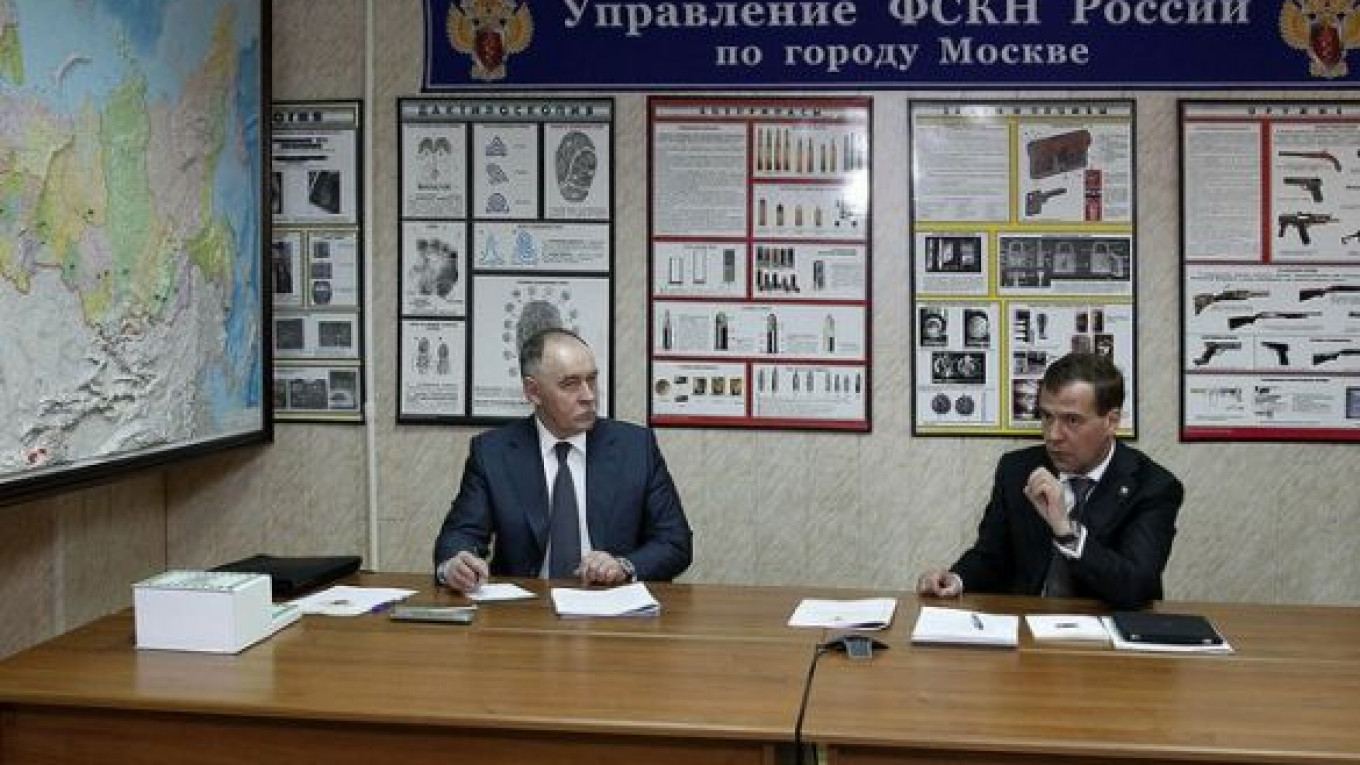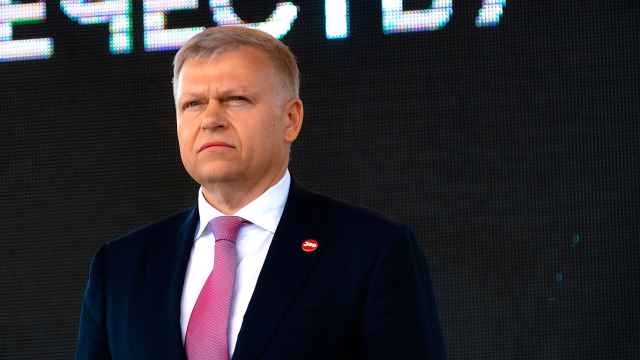Moscow canceled a bilateral crime-fighting agreement with Washington because the “material aid” it had been established to provide is no longer needed, Deputy Foreign Minister Sergei Ryabkov said Wednesday.
“Over time Russia has turned from an aid recipient into a donor … including via our crime-fighting agencies,” Ryabkov said in comments carried by Interfax.
He played down speculation that the cancellation was a tit-for-tat response to the U.S. State Department saying a few days earlier that it would withdraw from a joint working group on civil society issues.
“The question [of scrapping the aid deal] had been discussed with the Americans for the past three years,” he said, emphasizing that it was in no way connected with political relations.
The official reason given by Moscow was that the agreement, concluded in 2002, no longer corresponded to today’s reality and had exhausted its potential.
Under the agreement, the U.S. government provided financial assistance to Russian law enforcement agencies for crime-fighting projects. When it was concluded on Sept. 25, 2002, those agencies did not have enough money for such programs, the government has said.
The head of the State Duma’s international affairs committee said he did not think the cancellation would affect U.S.-Russian ties. “The [U.S. sanctions-imposing] Magnitsky Act has caused much more negative consequences than the decision to cancel this intergovernmental agreement on fighting crime and drug trafficking could ever produce,” Alexei Pushkov told Interfax.
He added on Twitter that Russia was “tearing away from dependence on ‘Nation No. 1.”
Viktor Ozerov, head of the Federation Council’s defense and security committee, told RIA-Novosti that a whole range of agreements between Russia and the U.S. were likely to be canceled in the future due to “obsolescence.”
Vyacheslav Nikonov, deputy head of the Duma’s international affairs committee, told The Moscow Times that he did not exclude that cancellation of the crime-fighting aid deal was a counter-measure to the U.S. withdrawing from the civil society panel.
U.S.-Russian relations, boosted in President Barack Obama’s first term with the so-called reset, have been noticeably cooler since the United States passed the Magnitsky Act, which seeks to impose sanctions on Russian officials implicated in human rights abuses. Russia subsequently passed a measure banning U.S. adoptions of Russian children.
“No matter how effective the agreement was, it is important that there is cooperation between professionals, and the [crime-fighting and anti-drug-trafficking] agreement showed a certain level of such cooperation,” said Alexei Malashenko, an expert with the Carnegie Moscow Center. He said professional collaboration was likely to continue, although it would be difficult to make arrangements without an official agreement.
A security agency source confirmed that Russia would not fully cease its cooperation with the U.S. on combatting drug trafficking. The source said cooperation would be continued with the U.S. Drug Enforcement Administration and the Counternarcotics Working Group.
Contact the author at e.kravtsova@imedia.ru
Related articles:






